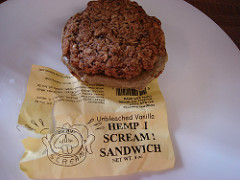Like me many people committed to supporting the fair trade industry aren’t aware of the ethical issues around cotton production. Issues such as land use, irrigation, exploitation of workers and the use of pesticides. Conventional cotton is literally destroying the environment and affecting the health and well being of millions of workers throught the world. With fantastic alternatives like bamboo and hemp now readily available its time for all us ethical consumers to vote with our wallets.
Cotton is a massive industry. Cotton crops cover over 5% of the world’s cultivated land and account for 16% of the pesticides used globally. 16% on one crop!!! How bad is that! What’s more, as virtually all cotton is grown in developing countries, there is very little control over the choice and quality of pesticides or the way they’re used. These highly toxic chemicals (cyanide and organophosphates) are responsible for poisoning the soil and the people who work it. World-wide it is estimated that over 3 million poisoning cases each year are caused by the use of pesticides on crops. Furthermore these chemicals don’t simply rinse out on their first trip through your washing machine. Even after several cycles you can still be absorbing these ghastly chemical through your skin.
Aside from being poisoned by the pesticides cotton workers are exploited at every level.
“The economics of Central Asian cotton are simple and exploitative. Millions of the rural poor work for little or no reward growing and harvesting the crop. The considerable profits go either to the state or small elites with powerful political ties. Forced and child labor and other abuses are common.”
The Curse of Cotton: Central Asia’s Destructive Monoculture- Asia Report N°93
Strangely, crop production, is an area that is often missed in reports on fair/ethical trade. The images of children sweating it out for 16 hours a day sewing clothes for Gap is a familiar one (The Observer October 28th 2007). But can you remember an article about the appalling working conditions of adults and children involved in growing cotton? Perhaps its easier to link the production of clothes to a specific company (especially if there’s a well-known logo involved) then to make the link between the high street stores and the cotton fields of Asia.
Irrigation is the other big no-no in the cotton production industry. Cotton needs huge amounts of water to grow – 6 litres for one Johnson’s cotton bud! The effects on the environment are simply staggering. The mighty Aral sea, once the 4th largest lake in the world, is now all but dry. The water that would have fed into it was re-channelled for use in cotton production. Instead of a lake there is now simply a bowl of dust. A bowl of dust the size of Germany.
The good news is that there are a growing number of ethically viable alternatives. The most popular being organic cotton, hemp and bamboo. All of these can be readily bought over the internet with some specialist stores opening on the high street.
Organic cotton
The greatest benefit here is that there are no pesticides and fertilizers used so its not poisoning the environment or the people involved in production. Care taken over the preparation of the soil allows it to retain moisture and reduces the need for supplementary irrigation. Adding in a fair trade label also ensures that workers receive a fair reward for their efforts.
Bamboo
There’s no doubt that Bamboo makes a great alternative. Its a soft and very comfortable fabric that allows air to circulate freely. It’s also antibacterial, anti-static and anti-fungal. It grows naturally without any need for fertilizers or pesticides and is 100% sustainable and 100% biodegradable.
Hemp
An incredibly soft and strong fabric that can retain its shape over many years (think T shirts here!) Like with bamboo it’s a fast growing crop that doesn’t damage the land and has no need for pesticides or fertilizers. Its breathable; keeps you warm in winter and cool in summer. Hemp is 100% sustainable and 100% biodegradable.
The realities of every day life can make it seem hard for us to live the sort of ethical life we’d choose. http://www.ajustlife.com is dedicated to both discussing the live issues of today and providing easy-to-follow solutions.
Please feel free to let me know about any issues you’d like to see discussed or about any resources you think other visitors might be interested in.
Thank you
Pamela
More Hemp Articles








Leave a reply